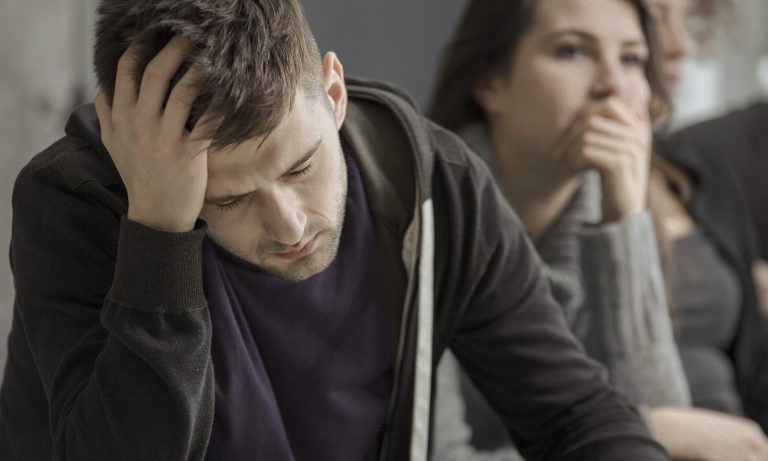 When you’re addicted to a substance or behavior, it can be painful. It could potentially impact every area of your life. One thing that can make addiction worse is when you’re in denial that you have a problem.
When you’re addicted to a substance or behavior, it can be painful. It could potentially impact every area of your life. One thing that can make addiction worse is when you’re in denial that you have a problem.
Perhaps people who care about you have pointed out that you’re addicted to something, and you deny it. That denial can hurt you because you’re not facing the reality that there’s a problem.
Here’s how denying your addiction can hurt you and what you can do about it.
Why are you in denial?
Maybe on some level, you know you have an issue with substance use or a behavioral addiction. If that’s the case, there are reasons that you’re pushing the topic to the side. Some possible reasons for the denial are:
1. You’re scared of looking at the behavior
2. You don’t want to give it up because it provides pleasure
3. You don’t know if you can kick the habit
4. You’re afraid of what’s going to happen if you give it up
5. Denial is a comforting state because you don’t have to do anything hard
If any of these reasons resonate with you, it may be because you’re in an active state of denial.
Acknowledge that stopping an addiction is hard
People who have addictions often feel powerless to their behavior. It takes work to stop your addictive behavior, and that could be overwhelming.
Look into West Palm Beach Luxury Rehab or other high-quality treatment centers that provide personalized care and support to help you through the recovery process. It’s okay to acknowledge that quitting your habit is hard.
You can use something called “self-compassion.” Tell yourself, “I’m struggling with my addiction, and it’s painful and hard.” It’s okay to say that because it’s the truth. Self-compassion is reassuring, and it can help you get to the next step of recovering from your addiction.
One step at a time
Feeling overwhelmed might also cause people to be in denial about addictions. Remember that you don’t have to stop your addictive behavior right this second. It’s going to take time to get better. Take it one step at a time.
Think about eating an apple. Do you swallow it in one bite? No, you don’t do that because it’s overwhelming. Instead, you eat one bite of the fruit at a time.
The same concept goes for addiction. Take one moment at a time. If you need to focus on one hour at a time or one minute at a time, that’s okay.
The first thing you need to do is admit you have a problem. The next step is asking for help.
It’s okay not to know what to do. After you know you have an issue with addiction, it’s time to seek help, and a therapist is an excellent place to start.
One great place to get help with addiction is with a mental health professional. The good news is that there are many ways to get therapy these days. You can find a provider online or in your local area.
Regardless of the method of treatment you choose, you are taking an active step toward healing from addiction. Many counselors even specialize in substance use or addiction. You can get the support you need to kick your addiction to the curb. Learn more about how therapy can help at MyTherapist.
The first step to getting help is facing your problem head-on. That might feel overwhelming and frightening, and these are natural emotions to experience. It’s important to remember that you might feel alone, but that’s not the reality.
A therapist wants to help you start the process of healing from addiction one step at a time.
Author

With an interest and dedication to addressing stigmas associated with mental health, she continues to specifically target subjects related to anxiety and depression.






